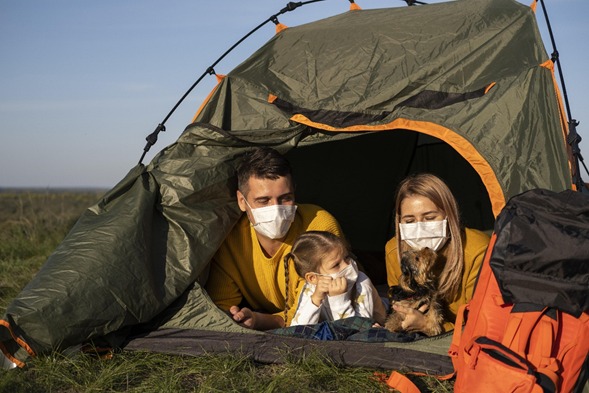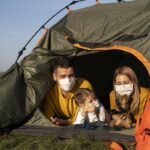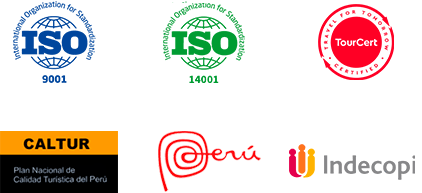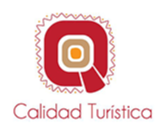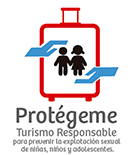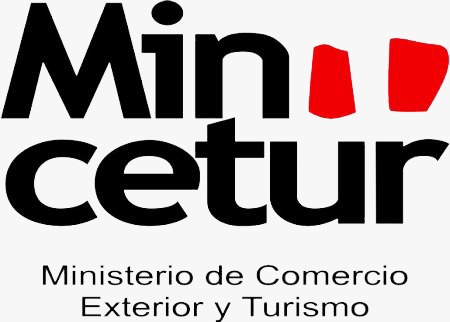People need to know the importance of offering responsible tourism, both to visiting travelers and to resident workers and others involved. Since there are health and biosafety situations that affect all parties.
Responsible Tourism
After the terrible news, due to the ravages caused by the virus that causes COVID-19, the whole world was forced to announce a state of emergency. A virus that became a pandemic and that has affected humanity in several important ways. Being tourism, one of the sectors that have been seriously affected.
The cessation of activities has dealt a severe blow to the social and economic area in all countries of the world. Speaking specifically of the tourism sector, it had to be 100% paralyzed since the WHO announced a state of global health emergency. What caused the closure of national and local borders and the cessation of airline activities.
Therefore, this article contains valuable information regarding health measures to ensure responsible tourism for all.
Responsible tourism: what is it about?
The term responsible tourism refers to the measures that must be taken to protect the physical integrity, also the economic and psychological, of tourist visitors. It should not be forgotten that residents of tourist sites, workers in the area, and tourist guides should also be included.
Demand and competitiveness are aspects that are directly affected by the good or bad provision of tourist services. Responsible tourism during this time of life will ensure that the industry remains afloat.
Compliance with the protocols, by tourists, workers, local people, and corporations, is mandatory. Remembering that there are still cases of people infected with the SARS-CoV-2 virus, and it is everyone’s duty to take care of ourselves and others.
Biosafety protocols to responsible tourism
Sanitary guidelines are the name of the document that stipulates the general specifications to practice tourism against Covid-19. The Ministerial Resolution approves it under No. 195-2020-MINCETUR.
In it, it is established that those in charge, responsible for managing tourist spaces, must ensure the proper use of public spaces. In which the crowding of people cannot be allowed.
Let’s observe a general summary of some of the areas involved in complying with the guidelines for the provision of responsible tourism.
Travel and tourism industry
The ideal intermediaries between travelers and tourist destinations are agencies dedicated to offering travel and tourism services. Therefore, the security protocol must allow the availability of these offices, so that travelers have their roundtrip trips insured.
For this industry, workers and users must wear masks. On the other hand, the use of technological means (preferably) to process payments or provide information. As well:
- Constantly disinfect the spaces.
- To make available to users some disinfectant solution.
- To ensure social distancing (physical separation).
Categorized hotels
During travel to a tourist destination, hotels play an important role. The stay in them represents a temporary home for the travelers. Therefore, the hotel industry is committed to offering confidence and security to travelers.
Responsible tourism is possible if the most important requirements that hotels must meet, for example, are met. Among them are:
- Baggage disinfection.
- Proper use of PPE (Personal Protective Equipment).
- Social interaction in common areas.
- Constantly disinfect all areas such as elevators, reception, stairs, lobby, administrative areas, among others.
Tourist guide
Tourism would not be the same if there were no tour guides. They are an important factor to reactivate tourist activity. The team of employees in this sector must try to use the implements correctly for their protection and that of the team.
- They must be provided with materials and work tools.
- Use disinfected and suitable equipment to protect them properly.
- 8 people maximum, for each group, managed.
Adventure tourism, canoeing, and hiking
For this area of tourism, social groups of 8 people maximum are established. Applies to family groups or other groups that stay traveling together for more than a week. It must be fulfilled:
- Disinfection of luggage before and after activities.
- For tents: disinfect before removing from warehouse, and disinfect before assembling and when disassembling.
Museums
Responsible tourism also certifies the proper functioning within museums, thus reducing the entry of visitors by up to 50%. The purpose of this measure is that the physical distance of 1 meter between person and person can be met. Like:
- Use of masks.
- Mandatory disinfect hands and footwear.
- To make visits, the entrance must be reserved by virtual or telephone way.
To learn more about it, visit this link. There you will find official information published since mid-2020.
Future effects of the protocols
The benefits that are expected to be achieved through the correct compliance with responsible tourism, through biosafety protocols, include positive effects for the economy, people, and the tourism sector.
For the tourism
- Safe destinations
- Evolution and promotion through promotion
- Industry growth through the birth and development of more companies and brands
- Achieve and maintain in use the so-called “bubble tourism”
For the tourists
- Income and expenses of tourist places in a safe and controlled manner
- Ensure the physical and psychological well-being of tourists throughout the visit
For the companies
- Improvements in the service area
- It Increases in supply and demand
- Training and health checks for all permanent staff
For the local population
- Educational consolidation
- Building trust with visitors
In this section, we share a link where you can enter, to know all the documentation and information pertinent to compliance with the legal parameters in the area of tourism.
We hope that the security measures to face the state of the pandemic, which continues to affect us, will keep people safe and sound. A somewhat unpleasant reality, which has deprived us of some freedoms that we previously took for granted.
The commitment to our health is everyone’s job, so the rules must be respected and complied with.

